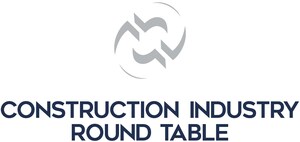CIRT's Linda Figg Testifies Before House Committee on the Negative Impact Excessive Regulatory 'Red Tape' Has on Jobs
WASHINGTON, March 18, 2011 /PRNewswire-USNewswire/ -- "To expect the U.S. economy to expand and become robust through government intervention and excessive regulations, is to expect something that 'never was and never will be,'" testified Linda Figg, chair of the Construction Industry Round Table (CIRT) and president of Figg Engineering Group before the Subcommittee on Regulatory Affairs, Stimulus Oversight and Government Spending of the House Oversight and Government Reform Committee. Appearing at a hearing called by the subcommittee to address the issue of "Regulatory Impediments to Job Creation: The Cost of Doing Business in the Construction Industry," Ms. Figg pointed out that dollars allocated to be spent on infrastructure projects are subject to time consuming and often redundant rules which weigh down efficiencies and delivery times, while increasing costs. The cost and time delays caused by redundancies, inefficiencies, and/or overlapping jurisdictions of the "regulatory complex" was dramatically illustrated in the latest CIRT Sentiment Index (1st-Quarter/2011) finding on this matter. According to CIRT's leading industry members, "red tape" increases costs by some 10% [based on a weighted average of responses to a question regarding delays and costs]. Applying FHwA studies as to jobs supported by infrastructure dollars, a 10% waste translates into hundreds of thousands of potential construction positions.
[Source: CIRT Sentiment Index Report, 1st Quarter 2011]
However, Ms. Figg also noted that the goal of these excessive procedures "could be accomplished without unnecessary delays and costs." One such example is the I-35W Bridge project that replaced the collapsed span which tragically killed 13 and injured many more on August 1, 2007. Cutting through unnecessary and excessive "red tape" from notice-to-proceed with construction to opening to traffic was only 339 days (well below the normal time frames) while staying within budget and meeting all safety and environmental concerns.
"The experiences from the new I-35W Bridge replacement could be left to just one project, never to be repeated and studied. Or we can take to heart the clear unmistakable lessons we've learned and put them to work across the board on a whole myriad of public projects so that we get the benefits of efficient, science-based, and cost/time sensitive regulations in a manner that gets important infrastructure built while still protecting and caring for our environment," concluded Ms. Figg. CIRT offered to assist the committee in whatever way it can to provide input and possible approaches or methodologies that will apply the streamlining lessons of successful work to a larger scope of federal projects.
CIRT is a national business trade association comprised of slightly more than 100 CEOs from the leading architectural, engineering and construction companies doing business in the United States. CIRT member firms directly employ over 600,000 individuals, and are responsible for more than $120 billion in public and private infrastructure work that improve the quality of life for all Americans. To read Linda Figg's testimony and for more information on other issues affecting the design and construction industry, check out: www.cirt.org.
SOURCE Construction Industry Round Table
WANT YOUR COMPANY'S NEWS FEATURED ON PRNEWSWIRE.COM?
Newsrooms &
Influencers
Digital Media
Outlets
Journalists
Opted In




Share this article